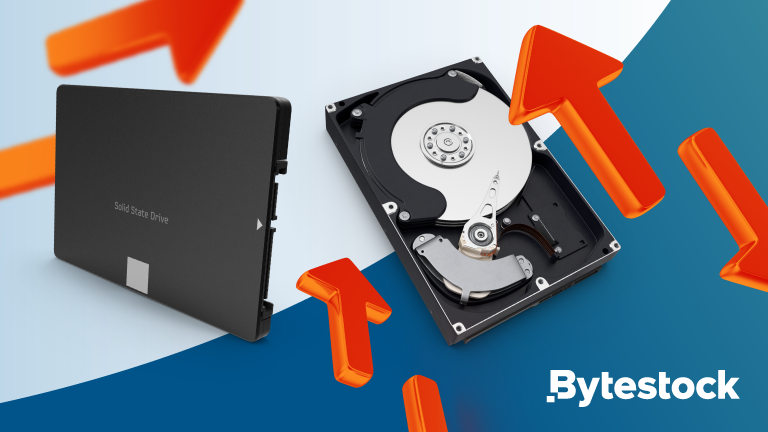At Bytestock, our engineers bring a deep understanding of the nuances involved in managing complex...
HDDs or SSDs: Making the Right Decision for Your Storage Needs

What’s the Difference?
In simple terms, both store your music, documents, videos, and other files, but the difference between HDDs and SSDs is that they use completely different technologies.
HDDs: Traditional hard disk drives use mechanical platters and a moving read/write head to access data. Imagine it like a vinyl record player: data is read and written by a head that moves across the disk at high speeds. However, because these parts are mechanical, HDDs tend to be the slowest component in modern computers.
SSDs: Solid-state drives (SSDs) use flash memory units, which consist of individual memory cells that can be accessed instantly by the controller. This technology allows SSDs to load information much faster than HDDs.
Capacity and Price Differences
Capacity is a major concern for storage drive consumers:
SSDs: Consumer SSDs generally range from 256GB to 1TB, with some reaching up to 3.84TB. Enterprise SSDs can go much higher, with the world record as of 2020 being a massive 100TB.
HDDs: HDDs typically offer higher capacities as standard. Common consumer sizes include 1TB, 2TB, 6TB, and even 8TB. Larger capacities do come with a higher price, but a HDD will still be significantly cheaper than the equivalent storage capacity SSD.
The computer storage market is volatile, and depending on the specification and whether you are looking for internal storage or external storage, HDD prices can range from £20 to £500 and SSD prices can range from £20 to £3000. For reliable prices, check out our web shop.
In summary, choosing between an HDD and an SSD depends on your needs and budget. If you need high-capacity storage at a reasonable price, an HDD will serve you well. If you need faster, more flexible performance, an SSD is the way to go.
If you have any questions about storage or anything else related to IT hardware, speak to our team or you can simply explore our range online.






